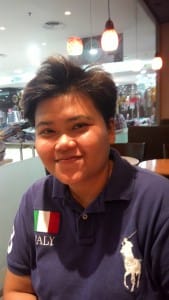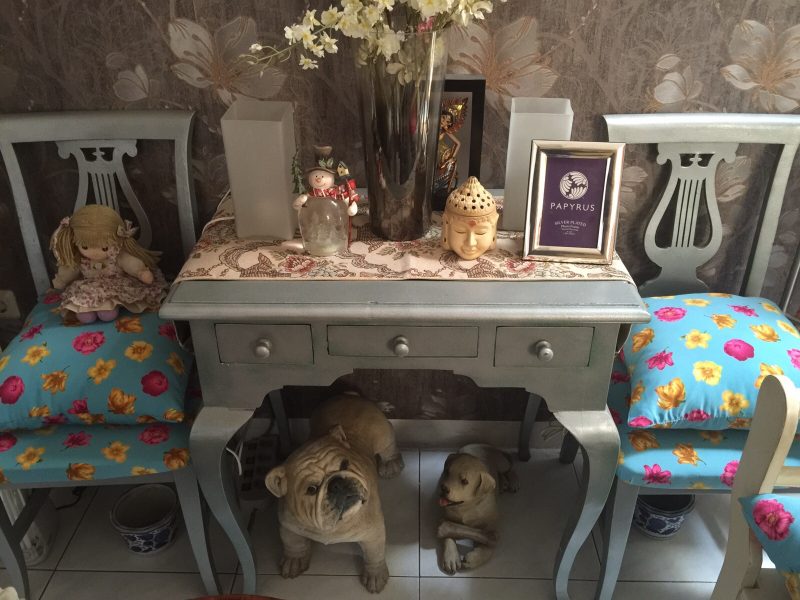REDUCE the consumption of fresh raw materials
REUSE anything that is not terminally damaged
RECYCLE waste materials into new products
We have all heard the 3-R mantra before, especially in the context of waste. And many a time we have been asked to promote or assist in the propagation of the 3-Rs by promoting composting of organic waste and separating glass, metals (aluminium cans) and plastics. The Jakarta administration has even installed wee little orange and blue containers on the side of many roads in an effort to provide the physical facilities to sort and dispose of waste in an environmentally friendly way. Unfortunately, the receptacles remain empty, while their lids have been nicked, probably to be recycled.
There is also another 3-R activity, often overlooked, but not less important to prevent waste of potentially useful materials and to reduce energy usage: extending the useful life of consumer products. Reusing white goods such as refrigerators and washing machines, furniture, sports equipment, electronics, chairs, tables, sofas, cupboards, beds, and not to forget clothing, could make a considerable difference to the protection of the environment.
In Western Europe and North America, the turnover of household goods is amazingly high. Not because they are no longer useable, but more because the owners have grown bored looking at them, and now opt for a different colour. And the old goods consequently are left at special dumpsites or are donated to a second-hand where they are sold, or if necessary, repaired and refurbished before selling. Goods left at the special dumpsite are free to be taken by anyone. The refuse collectors will usually have the first choice and remove the best items before the amateurs arrive on the scene.
Expatriates, especially the globetrotting types who are sent every few years to a new country and another assignment, often have some articles too cumbersome to carry along to the new location. Upon leaving, these goods are, more often than not, given to the household staff as a bonus. Maids, nannies and drivers are, however, not fully accustomed to handling a second-hand wardrobe or desk chair, and would rather see money as a farewell gift.
Departing expats could, of course, make use of the many websites where sellers and buyers of used furniture, electronics, white goods, golf clubs, clothing and the like, can meet. Some of the websites are listed below. The drawback of this way of selling surplus articles is that it might be a lengthy process.
In Jakarta there is a third way of disposing of surplus goods before moving. It is the second-hand goods shop called Toko Chris Angel and is operated by a girl with a very friendly smile called Christi.
She speaks English very well and will come and assess the goods, and purchase them if a price can be agreed upon. She has been in this business since 2010 when she joined her mother, Jaqueline, who started the business ten years earlier.
When asked about the changes that occurred during these 15 years, Christi stated that then, there were four outfits buying second-hand goods from expatriates, and almost exclusively selling to Indonesian customers. Now there remain two only. The reason is the shift from a house and garden arrangement to apartments, which are generally rented fully furnished. Fridges and ovens, for instance, are no longer put up for sale. And similarly, complete sets of household furnishings – for sleeping, dining, living, studying – are not on offer anymore. The occasional bed and table can still be found, but the volume has decreased.
Strangely enough, although Toko Chris Angel was started shortly after the financial crisis of 1998, the increase in economic welfare levels has not been accompanied by an increase in the quality of the goods demanded. Prices have thus remained stagnant. Christi does, however, strive to maintain optimum quality and looks for goods that are not less than 80 percent of their new condition. In case minor repairs are needed, she can arrange for that to be carried out.
According to her, Indonesian customers do not care about the brands of used articles, and do not even mind minor damages. But, second-hand is second-hand, and therefore, whatever the brand or condition, it does not merit more than a price of between 25-50 percent of their new value. This is something to keep in mind when negotiating a price for the articles you want to sell. It is thus not surprising that Christi’s margins are paper-thin.
Christi buys a wide range of goods, especially furniture, electrical and electronic articles, clothes, shoes, handbags, watches, sports and fitness articles. So, rather than trying the Internet auctions, or burdening your household staff with a dining table and six chairs, the easier option would be to sell to Toko Chris Angel and give the money to the staff.
She has managed to build up a core customer basis, from whom she buys in the city’s Japanese community. Among Jakarta’s providers of goods and services, it is a well-known fact that to attract highly quality-conscious Japanese customers, the best promotion is by word of mouth. The very large share of Japanese among her customers is thus an indication of the quality of the service provided by Christi.
The goods Christi buys are sold from her shop in Bintaro. Not an overwhelmingly expatriate residential area, and neither easily accessible.
A visit could be worthwhile. Clothes, for example, are branded and in very good condition. Any garment that does not satisfy Christi’s high-quality standards is donated to charities. The wardrobe or other items you need for your Jakarta period is possibly on offer in the shop. Check it out and happy hunting!
Websites offering second-hand articles for sale:
- Toko Chris Angel
- Bintaro, Pondok Betung, Gg. Mandor Kecil, West Jakarta
- Tel: 081 3193 42224




